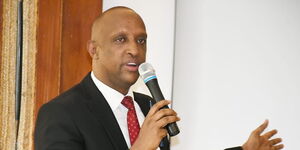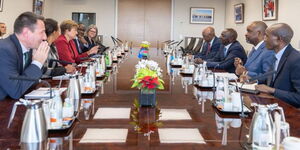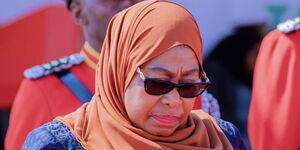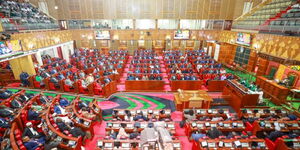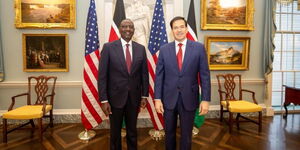Central Bank of Kenya Governor Kamau Thugge has explained why a new financing deal with the International Monetary Fund (IMF) is essential to sustaining the stability of the Kenyan shilling and the country’s overall economic growth.
Thugge, on Wednesday, said the government is in talks with the IMF and could access a normal level of additional funding under a new programme.
The shilling currently trades at Ksh129.23 against the US dollar and has maintained a steady path for nearly a year, with the CBK boss stating that the stability of the currency, coupled with easing inflation and improved lending conditions, shows Kenya’s macroeconomic framework is on a positive trajectory.
''Having a programme supported by the IMF is critical to sustaining this macroeconomic stability,'' Thugge told Bloomberg. He noted that IMF support not only boosts investor confidence but also helps Kenya attract funding from other multilateral institutions such as the World Bank and the African Development Bank.
The CBK Governor emphasised that continued IMF backing would allow the government to reduce its domestic borrowing, easing pressure on interest rates and providing the private sector with more room to access affordable credit.
Thugge outlined that Kenya has made significant progress in restoring macroeconomic stability since 2024. Inflation has eased below the 5 per cent target, while core inflation stands at 2.9 per cent, signaling controlled price pressures.
He further noted that easing monetary policy by the Central Bank had begun to bear fruit, with interest rates having declined, spurring private sector lending.
''In January, credit to the private sector was at negative 2.9 per cent, but by September it had risen to 5 per cent,'' Thugge added.
How Much Kenya Targets
On the specifics of the IMF engagement, Thugge clarified that Kenya does not intend to seek exceptional access to IMF funds but will operate within the normal limit of 600 per cent of its quota. He revealed that Kenya has already utilised 536 per cent of this quota.
''We just expect normal access, and we expect to repay this in the course of three years to create more space for future access,'' he said, indicating that the new arrangement will be structured to maintain fiscal discipline and ensure repayment sustainability.
The CBK boss, however, noted that discussions with the IMF are still in the preliminary stages. ''We are still at the initial stages and have not yet met all the documentation requirements. Therefore, the loan deal might not be concluded by the end of this week,'' he said.
The government’s delegation currently in Washington includes Treasury Cabinet Secretary John Mbadi, Principal Secretary for National Treasury Chris Kiptoo, CBK Governor Thugge, and other senior government officials. The team is leading Kenya’s negotiations with the IMF on the structure and conditions of the new financing arrangement.
Meanwhile, Thugge expressed optimism that once the discussions are concluded, Kenya will continue to benefit from multilateral confidence and stable financial inflows, which will reinforce the resilience of the shilling and protect the economy from external shocks.

